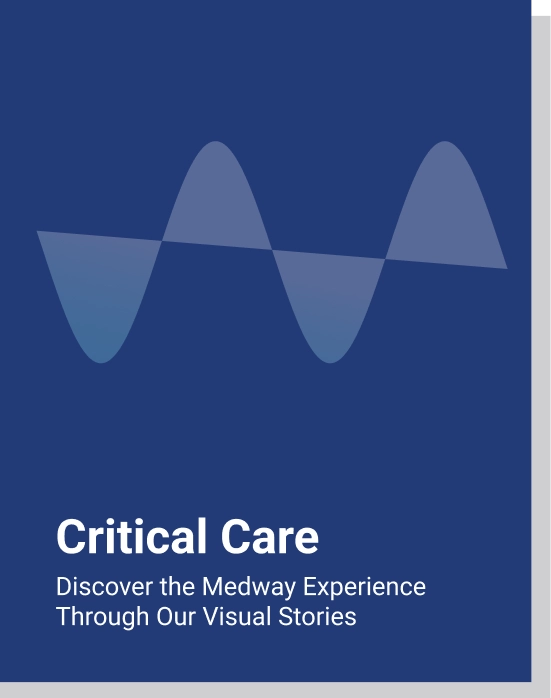Critical care offers specialized treatment for patients with life-threatening conditions, providing continuous, comprehensive care in an intensive care unit (ICU). This essential service ensures that patients receive the highest level of medical attention and monitoring. For those in need of advanced critical care, a critical care hospital in Chennai can offer the specialized resources and expert care required for optimal patient outcomes.

Critical care is a medical specialty dedicated to managing severe and complex illnesses that require intensive monitoring and treatment. It involves providing advanced, life-saving interventions to stabilize and support critically ill patients in environments such as intensive care units (ICUs). This specialty encompasses a broad range of conditions, from severe infections to major trauma, ensuring patients receive continuous, comprehensive care. Critical care in Chennai are known for their state-of-the-art facilities and highly skilled professionals. This specialty encompasses a broad range of conditions, from severe infections to major trauma, ensuring patients receive continuous, comprehensive care. Critical care hospitals in Chennai are known for their state-of-the-art facilities and highly skilled professionals.
Our critical care professionals work with sophisticated equipment and a multidisciplinary team to improve patient outcomes and ensure the best possible recovery. The expertise in critical care centres in Chennai allows for the handling of the most severe cases with a high degree of precision and care.

Severe Pneumonia
Septic Shock
Acute Pancreatitis
Severe Asthma
Myocardial Infarction (Heart Attack)
Stroke

Severe pneumonia is a critical infection that results in the inflammation of the air sacs, or alveoli, in one or both lungs. This inflammation can cause the alveoli to fill with fluid or pus, leading to symptoms such as severe cough, fever, chills, and difficulty breathing. If not promptly and effectively treated, severe pneumonia can lead to respiratory failure, where the lungs can no longer provide the body’s vital organs with enough oxygen. Critical care hospital in Chennai often provide the necessary intensive care for severe cases to ensure that patients receive adequate oxygenation and appropriate treatments to control and eliminate the infection.
Treatments:

Septic shock is a critical condition that arises when an overwhelming infection leads to a systemic inflammatory response, causing dangerously low blood pressure and significant organ dysfunction. This condition is a severe manifestation of sepsis and represents a medical emergency requiring immediate and aggressive intervention. The body’s response to the infection can cause widespread inflammation, blood clotting, and organ damage, making prompt diagnosis and treatment crucial for survival. ICU in Chennai provides comprehensive management for such life-threatening conditions.
Treatments:

Acute pancreatitis, sudden pancreatic inflammation, triggers intense abdominal pain and risks infections and organ failure. Swift medical intervention and ICU in Chennai are essential to manage symptoms effectively and prevent further complications. Treatment often involves intravenous pain management, nutritional support through enteral or parenteral feeding, fluid resuscitation for hydration maintenance, and administration of antibiotics if infection is present. In severe cases, surgical interventions may be necessary to address complications like necrosis. Critical care hospital in Chennai provides advanced, life-saving treatments for severe illnesses like pneumonia, septic shock, heart attacks, and strokes.ensure a comprehensive approach that guarantees tailored care to improve patient outcomes and minimize long-term consequences.
Treatments:

Severe asthma poses a significant threat to individuals as it can escalate rapidly, leading to respiratory failure if not managed promptly and effectively. During severe asthma attacks, the airways become severely constricted, making it difficult for the individual to breathe. This constriction can result in a decrease in oxygen levels in the blood, leading to hypoxia, which is a condition where the body tissues do not receive enough oxygen. In such cases, immediate medical intervention is crucial to stabilize the patient and ensure proper oxygenation. Critical care hospital in Chennai are equipped to handle such emergencies with the utmost precision.
Treatments:

A myocardial infarction, commonly known as a heart attack, is a medical emergency that transpires when blood flow to a section of the heart muscle becomes obstructed. This blockage typically occurs due to the buildup of plaque in the coronary arteries, which can rupture and form a blood clot, impeding blood flow to the heart. As a result, the affected area of the heart is deprived of oxygen and nutrients, leading to tissue damage or cell death if left untreated. Prompt intervention at a critical care hospital in Chennai is crucial to mitigate heart damage and prevent potentially fatal complications.

Expanding on the topic of stroke, it’s crucial to understand the various aspects involved in its treatment and management. When a stroke occurs, the interruption of blood flow to the brain can have severe consequences, often leading to brain cell death. Immediate intervention is essential to restore blood flow and minimize further damage to the brain. For comprehensive stroke management and critical care, a critical care hospital in Chennai provides advanced medical care and specialized treatment to ensure the best possible outcomes for stroke patients. Here are some key aspects of stroke treatment and critical care:
Critical care is a specialized medical service that delivers intensive treatment to patients facing life-threatening conditions. It encompasses a range of interventions provided in dedicated intensive care units (ICUs), aimed at stabilizing and managing acute health crises with meticulous attention to vital signs and organ function.
Critical care is indispensable for patients grappling with severe medical emergencies such as profound infections, respiratory distress, traumatic injuries, and other grave health challenges. These individuals necessitate the close monitoring, swift intervention, and sophisticated therapies available in intensive care settings to optimize their chances of survival and recovery.
Critical care units are equipped to address a spectrum of critical illnesses including sepsis, acute respiratory distress syndrome (ARDS), traumatic brain injuries (TBI), multiple organ dysfunction syndrome (MODS), acute kidney injury (AKI), and instances of cardiac arrest. These conditions demand comprehensive medical management and continuous monitoring to mitigate life-threatening complications.
Critical care diverges from standard hospital care through its intensive focus on patients confronting imminent or existing life-threatening scenarios. Unlike conventional medical services, critical care entails constant vigilance, specialized equipment, and an array of advanced interventions tailored to stabilize and support individuals grappling with acute physiological instability and organ dysfunction.
The therapeutic repertoire in critical care encompasses a multifaceted approach to managing acute medical crises. Common interventions include mechanical ventilation to support respiratory function, dialysis for renal failure, vasopressors to stabilize blood pressure, antibiotic therapy for infections, and the implementation of advanced life support measures to sustain vital organ function and preserve life.
Discover the convenience of managing your healthcare journey effortlessly with our Patient App. Designed with you in mind, our user-friendly app puts the power of your medical information and appointments right at your fingertips.




Appointments Scheduling, Prescription Management, Lab Reports, Access Telemedicine Services, Health
Help Line | |
Kodambakkam | |
Heart Institute | |
Mogappair | |
Kumbakonam | |
Chengalpattu | |
Villupuram | |
Erode | |
Kakinada |
Your feedback is important
to us. Please share your experiences
with

Copyright © 2024 Medway Hospitals. All rights reserved.